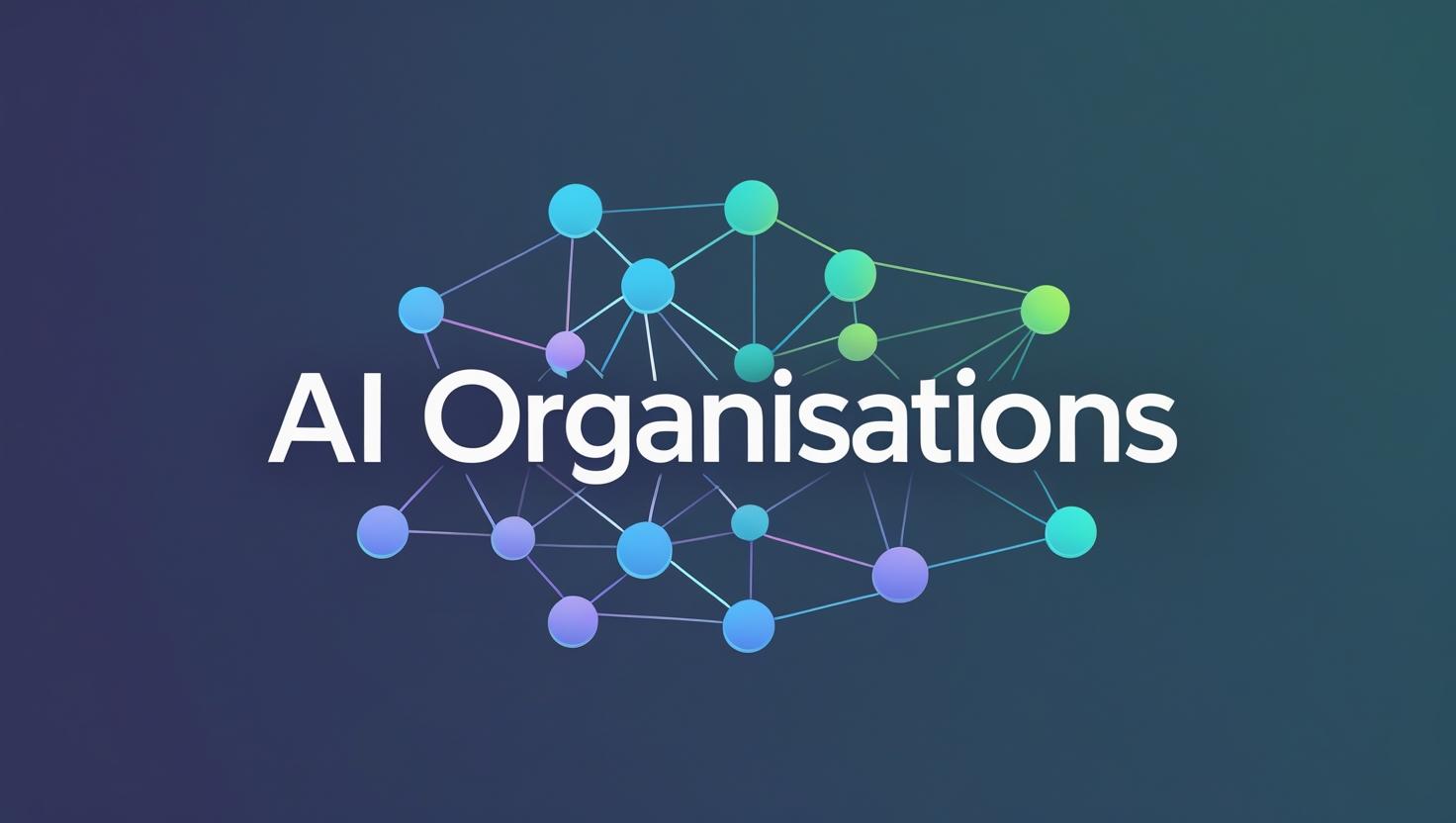
Explore leading AI organizations and collaborations shaping the future of artificial intelligence, policy, ethics, and innovation worldwide.
🌎 Global & Multilateral Initiatives
OECD AI Policy Observatory (OECD.AI)
Website: oecd.ai
An initiative of the Organisation for Economic Co-operation and Development, OECD.AI provides data, analysis, and policy resources to help governments, businesses, and societies develop trustworthy AI. It supports the implementation of OECD AI Principles, tracking trends, strategies, and promoting AI that respects human rights and democratic values.
Global Partnership on Artificial Intelligence (GPAI)
Website: gpai.ai
A multi-stakeholder platform of governments, experts, academia, and civil society driving responsible AI development and use. GPAI coordinates global projects on areas like responsible AI, data governance, and the future of work, guided by human-centric values.
ITU AI for Good
Website: aiforgood.itu.int
A global platform by the International Telecommunication Union leveraging AI to advance the UN Sustainable Development Goals (SDGs). It fosters collaboration through conferences, webinars, and projects addressing global challenges in health, climate, education, and equality.
UNESCO AI Ethics
Website: unesco.org/en/artificial-intelligence
UNESCO leads the international dialogue on AI ethics, promoting its Recommendation on the Ethics of Artificial Intelligence — the world’s first global normative framework. It helps nations craft policies that ensure AI is fair, transparent, sustainable, and respects human dignity.
🤝 Industry Alliances & Nonprofits
Partnership on AI (PAI)
Website: partnershiponai.org
A nonprofit coalition of academia, industry, and civil society creating best practices for responsible, transparent, and fair AI. Its work spans AI fairness, societal well-being, and labor impacts.
BigScience Project
Website: bigscience.huggingface.co
Hosted by Hugging Face, BigScience is an open research collaboration democratizing access to large language models. It developed BLOOM, a multilingual open-access LLM, with contributions from hundreds of global researchers.
MLCommons
Website: mlcommons.org
An open engineering consortium improving machine learning for everyone. Known for MLPerf benchmarks, MLCommons advances fair, reproducible performance evaluations and fosters accessibility.
AI Now Institute
Website: ainowinstitute.org
A research institute at NYU studying the social implications of AI, focusing on accountability, power dynamics, and impacts on labor, health, surveillance, and civil rights.
Future of Life Institute
Website: futureoflife.org
Dedicated to mitigating existential risks from AI and other advanced technologies. It promotes AI safety research, ethical alignment, and beneficial policies to safeguard humanity.
🎓 Academic & Research Collaborations
Allen Institute for AI (AI2)
Website: allenai.org
Founded by Paul Allen, AI2 advances high-impact AI research with open tools, datasets, and applications for science, education, and the public good. Notable projects include Semantic Scholar and pioneering work in NLP and computer vision.
CLAIRE (Confederation of Laboratories for AI Research in Europe)
Website: claire-ai.org
A pan-European network advocating human-centered, ethical AI research and innovation. CLAIRE fosters collaboration to strengthen Europe’s competitiveness and trust in AI.
ELISE (European Learning and Intelligent Systems Excellence)
Website: elise-ai.eu
A European research network promoting trustworthy, explainable, human-centered AI. It supports collaborative research, education, and knowledge-sharing in alignment with European values.
🇺🇸 United States Initiatives
National AI Research Resource (NAIRR)
Website: ai.gov (via NSF & National AI Initiative)
A government-led effort to democratize access to computing power, datasets, and expertise for AI research, enabling cutting-edge work even by under-resourced institutions.
U.S. National AI Initiative (AI.gov)
Website: ai.gov
The central hub for federal AI strategy, research coordination, and public resources aimed at ensuring responsible innovation, global leadership, and societal alignment.
🇪🇺 European Union Initiatives
European Commission AI Act
Website: ec.europa.eu
The EU’s landmark legislation establishing a risk-based framework for AI, banning harmful practices and mandating transparency, accountability, and human oversight of high-risk systems.
European AI Alliance
Website: futurium.ec.europa.eu/en/european-ai-alliance
A participatory platform engaging citizens, researchers, and stakeholders in shaping EU AI policy through discussions, feedback, and collaboration on ethical, social, and regulatory issues.
🇨🇳 China
China AI Industry Alliance (AIIA)
Website: aiia.org.cn (official site, primarily in Chinese)
An alliance under China’s Ministry of Industry and IT, AIIA unites leading companies, universities, and research bodies to foster innovation, standardization, and policy development in China’s AI industry.
🇮🇳 India
National AI Portal (IndiaAI)
Website: indiaai.gov.in
The official portal of India’s Ministry of Electronics and IT offering policy updates, research, skill-building resources, and success stories of India’s AI initiatives and its role in GPAI.
C‑DAC AI Research Centers
Website: cdac.in
C‑DAC operates advanced AI research centers across India focusing on healthcare, education, agriculture, NLP, and governance, contributing indigenous AI tools, datasets, and supercomputing infrastructure.

